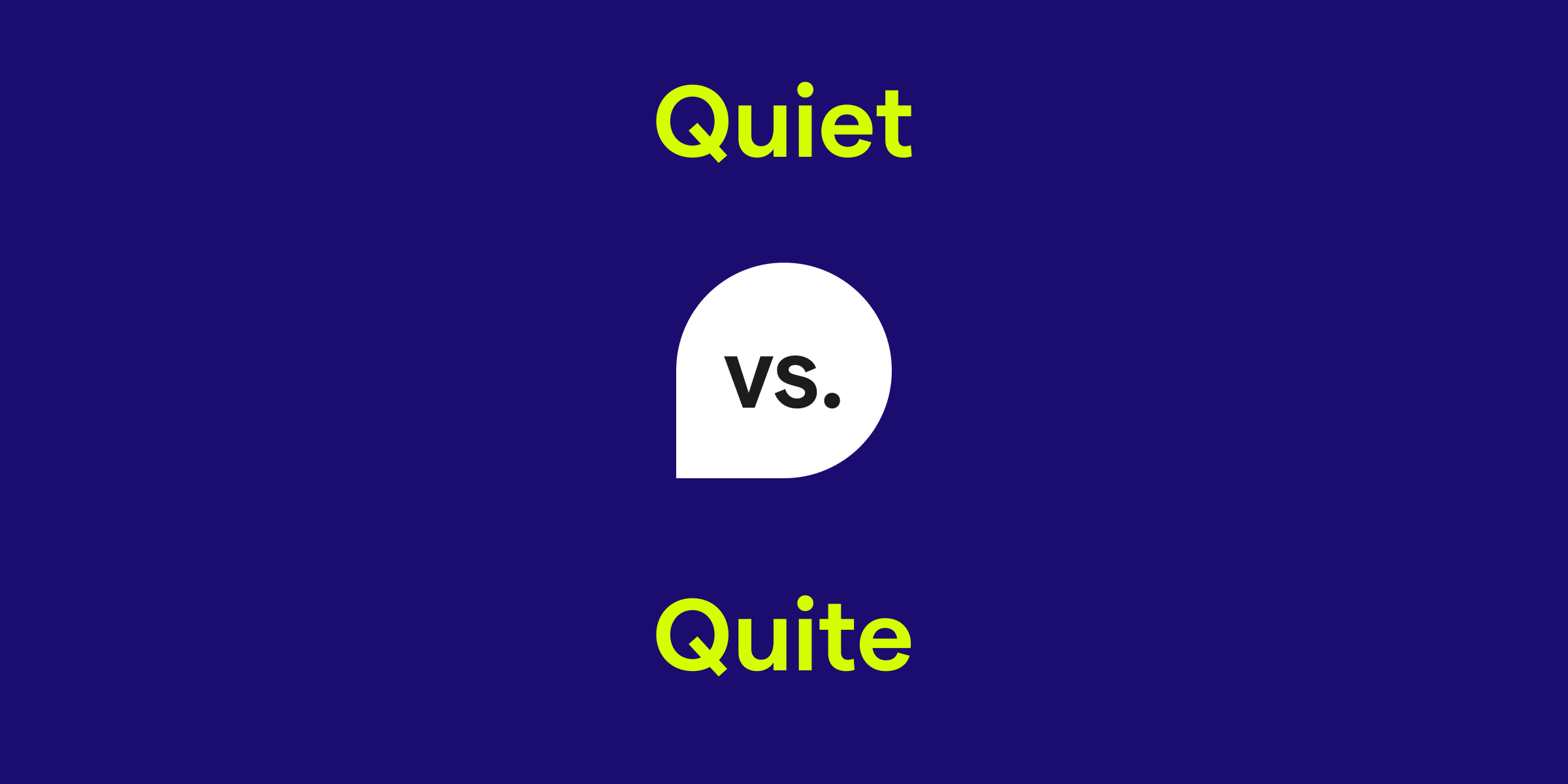Quiet vs. Quite: What's the Difference?
The words quiet and quite are often confused due to their similar spelling, but they carry distinct meanings and uses. Quiet refers to a lack of noise, or to someone or something that makes very little sound. In contrast, quite is an adverb that amplifies an adjective or another adverb, often equivalent to 'completely' or 'rather,' depending on the context.

How do you use the word quiet in a sentence?
The word quiet is typically used as an adjective to describe a person, place, or situation that is free from noise or disturbances. It can also be used as a verb meaning to make something silent or less noisy. Use quiet when emphasizing the absence or minimization of sound.
Examples of quiet in a sentence
- She prefers to work in a quiet room where she can concentrate without interruptions.
- During the meditation session, participants were asked to keep quiet.
- He quietly slipped out of the room to avoid disturbing the meeting.
How do you use the word quite in a sentence?
The word quite is an adverb used to modify adjectives or other adverbs, often to enhance or slightly modify the degree to which they apply. It is often used to express that something is to a significant extent but not completely. Quite can also be used to mean 'completely' or 'entirely,' depending on the context and the adjective that follows.
Examples of quite in a sentence
- The movie was quite interesting, though it was longer than I expected.
- She was quite pleased with the results of her hard work.
- It's quite cold outside, so don't forget to wear a coat.
Quiet and quite definitions, parts of speech, and pronunciation
Quiet definition:
Quiet is used as an adjective to mean the state or quality of being silent or having little to no noise. As a verb, it means to make or become silent or to calm down.
Quiet parts of speech:
Quiet pronunciation:
Quiet is pronounced as /ˈkwaɪ.ət/.
Quite definition:
Quite is an adverb used to emphasize the degree or amount of something; it can mean 'to a considerable extent or degree' or 'completely,' depending on the context.
Quite parts of speech:
Quite pronunciation:
Quite is pronounced as /kwaɪt/.
Quiet is used as an adjective to mean the state or quality of being silent or having little to no noise. As a verb, it means to make or become silent or to calm down.
Quiet parts of speech:
- As an adjective: The library is a quiet place, suitable for studying or reading.
- As a verb: He managed to quiet the alarms before they woke everyone in the house.
Quiet pronunciation:
Quiet is pronounced as /ˈkwaɪ.ət/.
Quite definition:
Quite is an adverb used to emphasize the degree or amount of something; it can mean 'to a considerable extent or degree' or 'completely,' depending on the context.
Quite parts of speech:
- Adverb: The instructions were quite simple to follow, even for a beginner.
- Adverb: She found the film quite entertaining, although it was not a blockbuster.
Quite pronunciation:
Quite is pronounced as /kwaɪt/.
Quiet vs. quite in a nutshell
In a nutshell, quiet is an adjective and verb revolved around the absence of sound, while quite is an adverb that modifies other words to indicate degree. Quiet describes a silent environment or action, as in a peaceful location or the act of silencing. Quite modifies an adjective or adverb to suggest completeness or a considerable amount, thereby intensifying the meaning of the modified word. Understanding their different roles in a sentence can greatly improve precision in communication.
Get AI Writing Assistance Wherever You Type
Make sure your vocabulary is on point and every punctuation mark is in the right place, no matter where you’re working. Grammarly works across more than 1 million websites and apps so you can improve your writing without copying, pasting, or breaking focus.

More Commonly Confused Words
Interest piqued? Pore (not pour) over other commonly confused words to help your writing reach peak (not peek) performance.